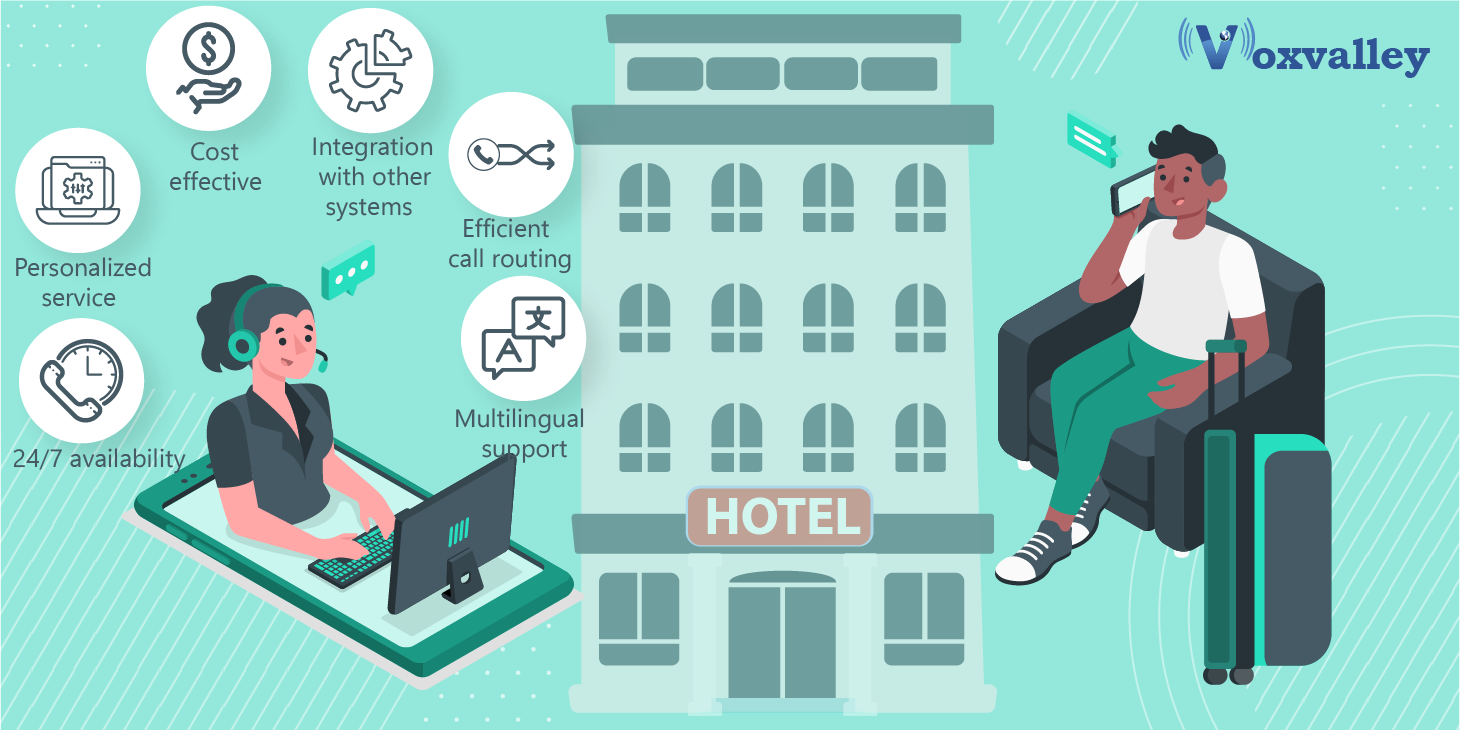
IVR System Benefits for Hospitality Industry – How
The term “IVR” (Interactive Voice Response) refers to a technology that enables callers to communicate with an automated voice menu and move through a sequence of prompts and selections using either their voice or the phone’s keypad. Businesses and organisations frequently use IVR systems to automate repetitive operations, give customer assistance and self-service alternatives, and route incoming calls to the right department.
IVR systems frequently start with a welcome message that offers the caller a menu of alternatives. The caller can then choose an option by either speaking the command out or tapping the matching key on their phone keypad. Depending on the caller’s choice, the IVR system will then offer additional prompts or redirect the call to the relevant department or representative.
With hotels, resorts, and other businesses vying for visitors and clients, the hospitality sector is extremely competitive. Offering top-notch customer service is one way the sector may set itself apart. IVR (Interactive Voice Response) services can be a useful tool for giving customers prompt, effective service, enhancing their experience. We will go through some IVR system benefits in the hospitality industry and how they can enhance customer service in this blog.
Efficient call routing
IVR call system can be used to direct calls to the proper department or individual, increasing efficiency and cutting down on client wait times. For instance, people can phone the hotel to make a reservation, order room service, or report a problem with their accommodation. In order to ensure that customers are swiftly connected to the relevant person who can assist them with their request, an IVR system can route these calls to the appropriate department. Wait times may be cut down as a result, and customer satisfaction may also increase.
24/7 availability
The capacity of IVR systems to offer customers around-the-clock accessibility is one of their main advantages. Callers can reach an IVR system at any time, day or night, and it will connect them to the proper department or provide them the information they require. For visitors who are in various time zones or who have urgent needs beyond regular business hours, this can be especially helpful.
Personalized service
IVR systems can be modified to offer guests individualised service. An IVR system might, for instance, welcome visitors by name, tell them of their reservation, and make tailored suggestions for nearby amenities or attractions. Hotels may give their customers a more distinctive and memorable experience by offering personalised service, which can raise customer satisfaction and loyalty. This could contribute to giving visitors a more unique and memorable experience, increasing their contentment and loyalty. A hotel’s income and profitability can increase when guests are much more likely to come back and promote it to others when they receive customised care. In general, hotels can stand out from their rivals and improve the visitor experience by personalising IVR systems to provide individualised assistance.
Multilingual support
IVR systems can offer multilingual assistance to visitors, enhancing their satisfaction and experience. For instance, an IVR system can provide language choices for visitors who speak Spanish, French, or other languages, ensuring that they can communicate with the hotel staff successfully. This could contribute to fostering a more friendly environment for visitors, increasing customer loyalty and spreading good word of mouth.
Integration with other systems
In order to give visitors a seamless experience, IVR systems can be coupled with other systems like customer relationship management (CRM) or property management systems (PMS). For instance, a guest’s reservation information can be accessed by an IVR system, which can then offer personalised service based on the guest’s preferences or previous contacts with the hotel. This could contribute to giving visitors a more seamless and integrated experience, boosting their happiness and loyalty.
Cost-Effective
IVR systems may be an affordable approach to offer guests customer support. An IVR system may conduct these activities automatically, freeing up personnel to concentrate on other responsibilities rather than recruiting additional workers to answer phones or handle visitor requests. A more affordable alternative to hiring more people to handle incoming calls and give guests information is to implement an IVR system. Hotels can cut labour expenses by automating these processes, especially during busy times when phone volumes are high. This could save labour expenses and boost productivity, increasing the hotel’s profitability.
The hospitality industry can benefit greatly from IVR systems in a variety of ways. IVR systems can, first and foremost, help hotels save money by lowering the number of employees needed to handle incoming calls and give guests information. IVR systems can free up personnel to concentrate on more sophisticated client demands, such as managing reservations, handling complaints, and offering individualised service, by automating mundane activities like presenting information about hotel availability, pricing, and amenities. Hotels and resorts can enhance the visitor experience, boost customer satisfaction and loyalty, and ultimately increase revenue and profitability by putting in place an IVR system.
Get Free Startup Kit !
Zero Investment & 6 Months Free